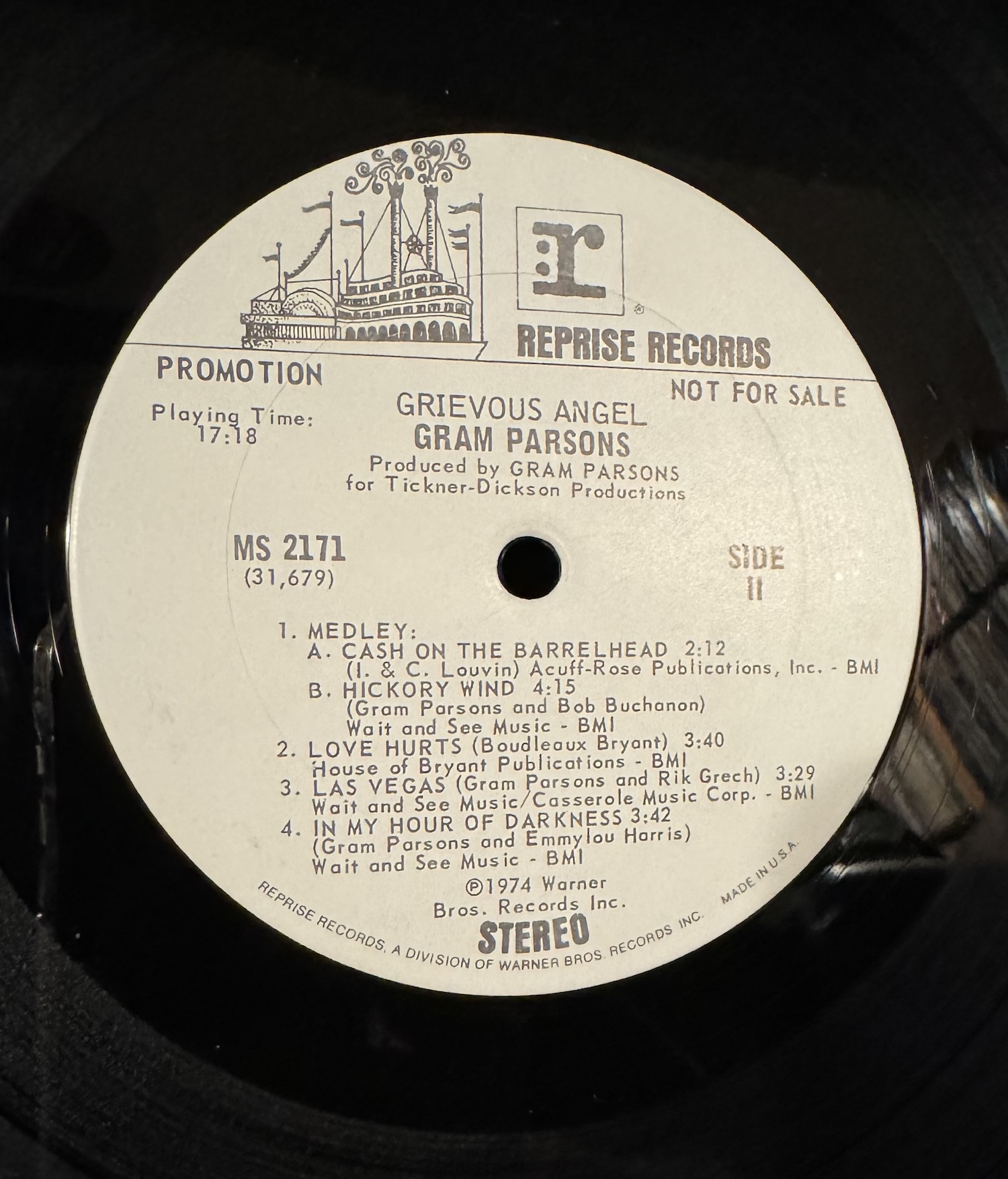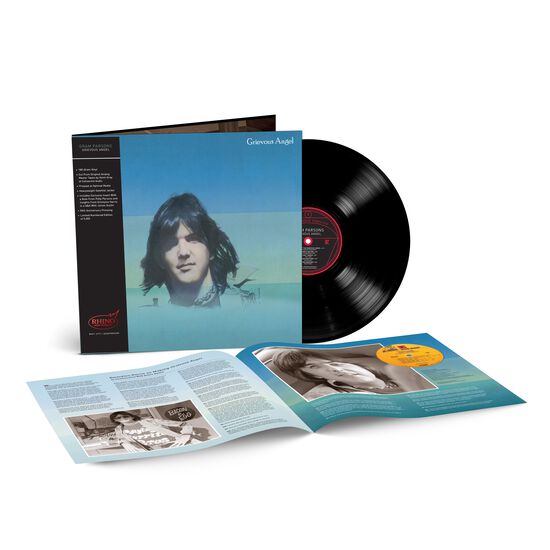Gram Parsons' "Grievous Angel" Gets Rhino High Fidelity Treatment
fortunately the sound is superior to the jacket art reproduction
Gram Parsons overdosed in the desert shortly after recording these tracks at Wally Heider's Hollywood Studios. A damn shame and a waste of a troubled life. His greatness is more appreciated now than when he lived. That often happens with artists, especially those bridging musical gaps as Parsons did, bringing country to rock first by joining The Byrds and being to a great degree responsible for Sweetheart of the Rodeo—an album originally conceived as more of a wide ranging look at popular music but ending up as a country album that pissed off both the Nashville establishment, and young rock fans who were turned off by its seemingly "redneck" sensibilities. Parsons was out of The Byrds before Sweetheart... was even released.
But let's take a breather from the "Gram Parsons was the country-rock pioneer" and remember that The Beatles were doing this much earlier and George Harrison was picking and adding country riffs on his Gretsch Country Gentleman!
Now back to our narrative:
Like Parsons' later efforts with The Flying Burrito Brothers, Sweetheart of the Rodeo and both of his Reprise solo albums were commercial flops though they were well-liked by the rock press and since first being released have maintained cultish followings. All of Gram Parsons records are more popular and better appreciate today than they were when first released.
There's been some blowback about this Rhino release when it was announced from those who just want the "S.O.S." reissued with better packaging and sound, but those people are best ignored. Grievous Angel is an album worthy of reissue, even though, while it was pre-conceived while Parsons was touring in support of GP his first Reprise solo album (and yet another commercial failure) it was assembled by others following Parsons' passing, and it includes two misguided tracks labeled "Medley Live From Northern Quebec" that are studio recordings overdubbed with "live concert" backgrounds lifted from other productions.
If you've been a fifty year fan of this record, of course you welcome its reissue so more people can discover it (that's me!).

If Parsons' voice on the opener track "Return of the Grievous Angel" doesn't immediate grab you, the rest might not either, but I'm betting it will. And the song itself, with lyrics by Boston poet-fan Thomas Brown sent via cassette is the deal sealing charm.
The album really is a Parsons-Emmylou Harris duet set but Parsons' widow objected to the billing, though probably not as much as the relationship between the two, which by all accounts was just a singing collaboration, so the cover photo and album title credit was changed. However, whatever you think of Emmylou Harris's solo efforts, her duets here with Parsons are stellar. "Hearts on Fire" and especially the cover of "Love Hurts" are some of her most impassioned singing on record.
I'm not going to go through the whole set but if you can tune out the stupid fake audience (well it's a real audience put into a fake situation), the rendition of "Hickory Wind" first heard on Sweetheart of the Rodeo is a standout (if that song didn't make you a Parsons fan from Sweetheart, how could the next song "One Hundred Years From Now" not?).
Add great players, some from Elvis's band (Glen G. Hardin and James Burton) and guests including Linda Ronstadt, Bernie Leadon, and drummer Ron Tutt (well known to audiophiles from The Sheffield Track Record) and you have a lot to sonically chew on.
But mostly it's Parsons' rich, mellifluous voice, filled with heartache, regret and mischief and it's very well recorded, as is the entire ensemble. Nice soundstage, overall transparency and immediacy. No surprise. It's Wally Heider's!
My original promo copy sounds great, but has a somewhat bright top signature many Reprise Records had at the time and less than fully extended bottom end. This reissue puts the tonal balance on a more even footing, with a firmer bass line but the top is still a bit hard. It's what it was and glad Kevin Gray let it be.
But what's with the album cover? The colors are all wrong. Clearly the original artwork no longer exists and a scan of the original wasn't used either because on the back jacket credits "Capitol Recording Studios" is spelled "Capital Recording Studios". YOIKES! Scans from clean copies work great. Classic Records did it all the time so not sure what happened here.

Otherwise, this is a fine sounding reissue of a record that was worthy of the Rhino High Fidelity treatment, especially since it originally did not sell in large numbers, and used clean copies cost about the same or more than this reissue.
The other record for this "two at a time" Rhino High Fidelity release series is Emmylou Harris's Luxury Liner. Conceptually it makes complete sense for obvious reasons. And it was a number one Country album plus it has an early cover of Townes Van Zandt's "Poncho and Lefty" and many other great song choices, plus a great band you'd want to hear playing together. But used copies are plentiful and inexpensive and her performance of these songs, at least for me, is emotionally flat and "soul less"—in the company of Parsons a few years earlier she came emotionally alive (maybe that's what the widow Parsons detected and didn't like).
Luxury Liner was recorded using her then husband Paul Ahern's Enactron truck (I visited the studio site and was once in the very cool Mobile studio truck for a record launch— it was an oddball A&M album produced by Glyn Johns (who as I recall was there) called White Mansions conceived and written by an Englishman (Paul Kennerley) that was kind of like "The Night They Drove Old Dixie Down" on steroids—and her voice is distant and bathed in too much reverb. I don't connect with it but if you do, you might like it if just for the packaging and fine annotation.
As for Grievous Angel, it's been a constant musical companion for fifty years and I'm glad Rhino's reissued it for more generations to enjoy. Damn sad death then and now.









































.png)








